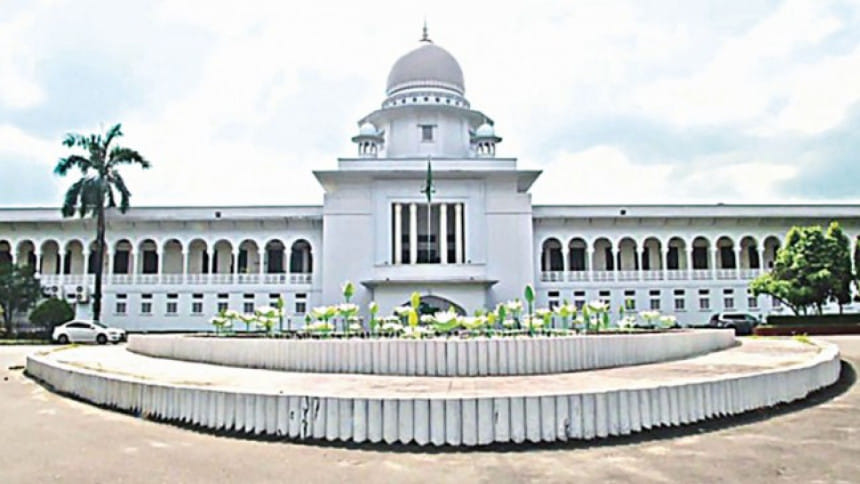Two decades gone by, yet no closure

Twenty years on from the 2001 Ramna Batamul bomb blasts which killed ten people at Pahela Baishakh celebrations, justice is yet to be delivered to the family members of the victims as the appeals and death reference in connection with the carnage case are still pending with the High Court.
Legal tangles continue to cause delays in the hearing and disposal of appeals filed by the convicts and the death reference of the case at the HC for nearly seven years, as two separate HC benches have refused to deal with them for different reasons.
Besides, the attorney general's office has not extensively taken any move for their expeditious hearings, considering that an expected judgment may not come from the HC as there are serious weaknesses in the investigation and lack of evidence and documents, say court sources.
The HC bench led by Justice Krishna Debnath and ASM Abdul Mobin is scheduled to hold hearing on the death reference and appeals of the case on May 30.
Contacted recently, Attorney General AM Amin Uddin could not specify how much time will be needed for hearing and disposing of the Ramna Batamul carnage case.
"I cannot say when the High Court can finish hearing and disposal of the [Ramna Batamul carnage] case. The court [HC] will hold the hearing after the state and defence lawyers will get prepared for placing arguments on the case," he told The Daily Star on March 30.
Last year, too, courts -- including the Appellate and HC divisions of the Supreme Court -- were closed across the country due to the ongoing coronavirus outbreak and the then attorney general Mahbubey Alam had told The Daily Star that his office would take steps for hearing and disposing of the death reference and appeals of the case after the court reopened.
Mohammad Shishir Manir, a defence lawyer for death-row convict Moulana Akbar Hossain alias Helaluddin, told The Daily Star recently that the case has been included in the HC's hearing lists 315 times since 2014, but the benches concerned adjourned the hearing each time following the state's adjournment prayers.
There is no evidence and documents to prove charges brought against the convicted accused of the case, he said, adding that the trial court has delivered an "emotional verdict" in the case, he said.
"My client has been suffering in a condemned cell for around 20 years although there is no evidence against him," he added.
On March 14 this year, Deputy Attorney General Shahin Ahmed sought adjournment from the HC bench led by Justice Krishna Debnath for hearing the case, saying that the Attorney General will place arguments on the issue.
Earlier, two separate HC benches had refused to hear the same matter for different reasons.
According to the sources in the attorney general's office, the investigation of the case was conducted carelessly during the rule of the then BNP-Jamaat alliance government.
Besides, the main accused, Mufti Abdul Hannan, has already been executed in 2017 in connection with another criminal case.
There are no proper documents and evidence, other than confessional statements from one or two convicts, to prove the charges brought against the accused and therefore the state counsels are not serious about this case, these sources said.
If a lower court sentences any person to death, its judgment is examined by the HC through hearing arguments for confirmation of the death sentence.
The case documents and judgement reach as death references to the HC from the lower court within seven days of the latter delivering the verdict, as per the relevant rules of the Code of Criminal Procedure.
The HC bench led by Justice M Enayetur Rahim had started hearing the death references and appeals of the Ramna case on January 8, 2017; after hearing for several days, it adjourned the hearing on February 22 the same year.
This bench then dropped the matters from its cause list on August 8, 2017 as state counsel had not officially informed it about the execution of Mufti Hannan.
Subsequently, the Chief Justice assigned the HC bench led by Justice Md Ruhul Quddus to finish the hearing of the death references and appeals. But this bench too could not hear the case as its hearing jurisdiction was reconstituted.
THE RAMNA BLASTS
Two bombs went off during Bangla New Year 1408 celebrations on April 14, 2001 organised by Chhayanaut, a leading cultural organisation, at Ramna Batamul in Dhaka. Ten people were killed and dozens injured in the incident.
On June 23, 2014 a Dhaka court handed down the death penalty to eight militants of Harkat-ul-Jihad al-Islami (Huji), including its top leader Mufti Abdul Hannan, for the killings. Six other militants of the banned Islamist outfit were sentenced to life imprisonment for their involvement in the blasts.
The accused who got capital punishment by the trial court are Mufti Abdul Hannan, Moulana Akbar Hossain alias Helaluddin, Moulana Mohammad Tajuddin, Hafez Jahangir Alam Badar, Moulana Abu Bakar alias Selim Hawlader, Mufti Shafiqur Rahman, Mufti Abdul Hye, and Arif Hasan Suman.
The court awarded life imprisonment to Moulana Abu Taher, Moulana Sabbir alias Abdul Hannan, Moulana Yahiya, Moulana Shawkat Osman alias Sheikh Farid, Moulana Abdur Rouf, and Shahadat Ullah alias Jewel.
Nine of the convicted accused are in jail while five -- Tajuddin, younger brother of BNP leader Abdus Salam Pintu, Hafez Jahangir, Moulana Abu Bakar, Mufti Shafiqur, and Mufti Hye -- are absconding.
Mufti Abdul Hannan, one of the country's most notorious militants involved in plotting and carrying out terror attacks by Harkat-ul-Jihad al-Islami Bangladesh, was executed at Kashimpur High Security Prison on April 13, 2017.
Hannan was executed for carrying out a grenade attack on the then British High Commissioner Anwar Choudhury in Sylhet on May 21, 2004.

 For all latest news, follow The Daily Star's Google News channel.
For all latest news, follow The Daily Star's Google News channel. 



Comments